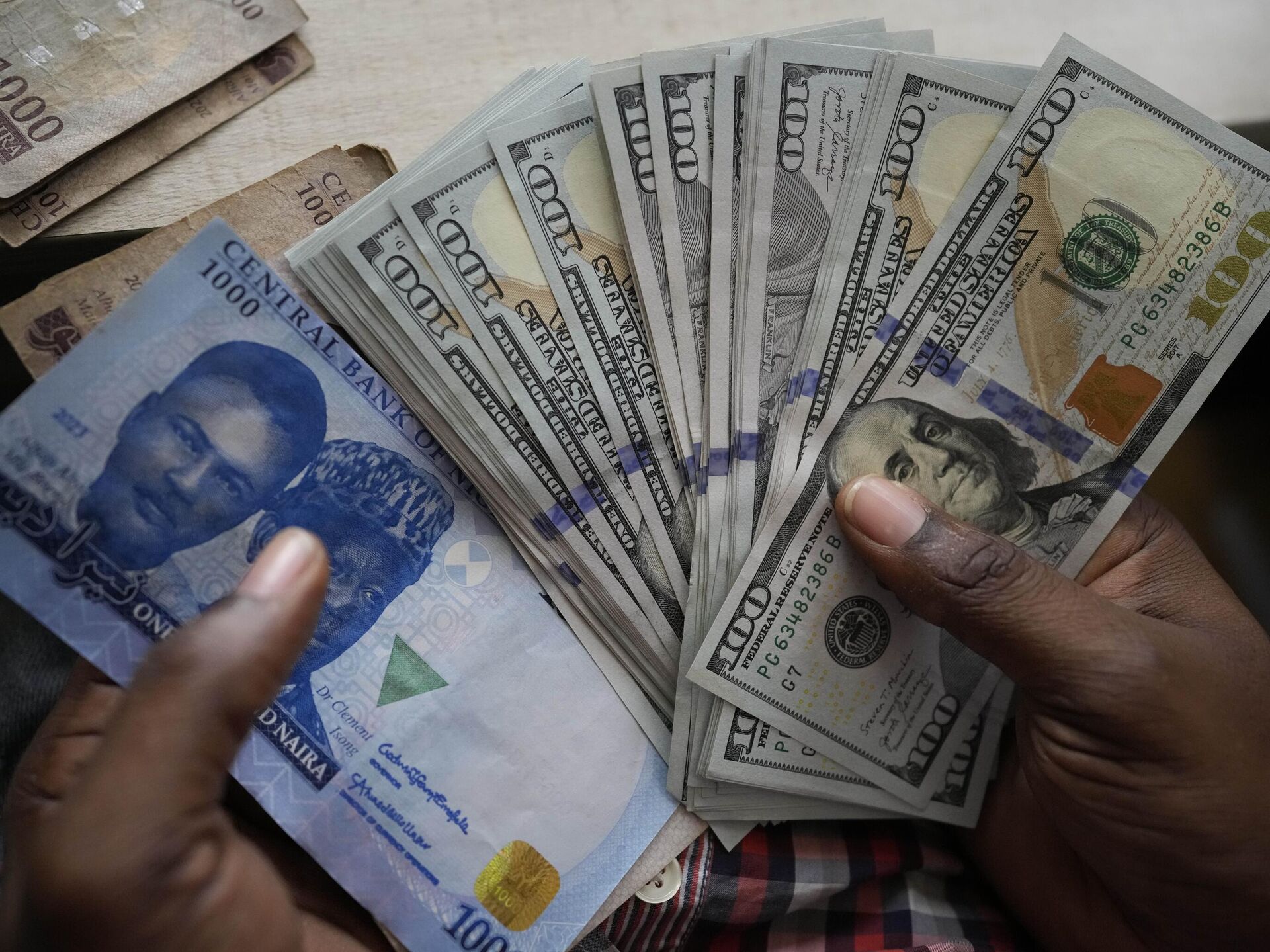The Naira’s depreciation against the U.S. dollar has been a pressing concern for Nigeria, reflecting broader economic challenges and impacting everything from inflation rates to foreign investment.
This decline is not attributable to a single cause but rather to a confluence of domestic and international factors that have compounded over time.
From the fluctuating fortunes of oil revenues to the intricacies of forex management policies, a range of issues contribute to the currency’s volatility.
Understanding these causes is crucial for formulating effective responses to stabilize the Naira and foster a more resilient economy.
1. High Demand for the Dollar
The high demand for U.S. Dollars in Nigeria, driven by needs for foreign education, medical tourism, importation of goods, and other services, significantly surpasses the supply, leading to depreciation of the Naira.
2. Oil Revenue Decline
Oil, being Nigeria’s main export, plays a crucial role in forex earnings. A decline in oil prices or production impacts foreign exchange inflow, leading to a dollar shortage and putting pressure on the Naira.
3. Dollar Shortage
A direct consequence of reduced oil revenues and external investment, the shortage of dollars affects the ability of businesses and individuals to access forex at official rates, pushing them towards the more expensive parallel market.
4. Dwindling Foreign Reserves
The decrease in foreign reserves limits the Central Bank of Nigeria’s capacity to intervene in the forex market to stabilize the Naira. These reserves are crucial for maintaining the currency’s value through forex supply.
5. Foreign Exchange Management Policies
Controversial foreign exchange management policies by the CBN, including maintaining multiple exchange rates, have been criticized for creating inefficiencies and uncertainties in the forex market, contributing to the Naira’s depreciation.
6. Global Economic Uncertainties
Events such as the U.S.-China trade war, Brexit, and global recessions have a cascading effect on investor confidence, leading to reduced foreign investment inflows into Nigeria and increased pressure on the Naira.
7. Reduction in Foreign Investment
Political and economic uncertainties within Nigeria discourage foreign investment. Lower investment levels mean fewer dollars entering the economy, further exacerbating the Naira’s weakness.
8. COVID-19 Pandemic Effects
The pandemic had a profound impact on global and local economies, reducing demand for oil, disrupting supply chains, and leading to a significant reduction in forex earnings for Nigeria.
9. Inflation and Economic Policies
Inflation erodes the purchasing power of the Naira, making imports more expensive and increasing demand for dollars. Economic policies that fail to curb inflation or stimulate growth can worsen the currency’s depreciation.
10. Speculative Activities
Speculation in the forex market, where investors bet on future movements of the Naira against the dollar, can lead to increased volatility and pressure on the Naira. Speculators might hoard dollars, anticipating further depreciation of the Naira, thus exacerbating the currency’s fall.
Addressing these challenges requires a multifaceted approach, including diversifying the economy away from oil dependency, improving forex management policies, bolstering foreign reserves, enhancing political stability, and implementing measures to attract more foreign investment.

The depreciation of the Naira against the U.S. Dollar is a multifaceted issue influenced by domestic and international factors. The ten main reasons identified include high demand for the dollar, declining oil revenues, a shortage of dollars, dwindling foreign reserves, controversial forex management policies, global economic uncertainties, reduction in foreign investment, the impact of the COVID-19 pandemic, inflation and economic policies, and speculative activities in the forex market.
Each of these factors plays a significant role in the currency’s performance, from the direct impact of oil revenue fluctuations and foreign investment patterns to broader economic policies and global market dynamics. The high demand for dollars for various purposes outstrips supply, leading to depreciation. Oil, as the primary foreign exchange earner, directly affects the currency’s strength with its volatile prices and production levels. Policy decisions, particularly in forex management, and global uncertainties further exacerbate the situation, deterring foreign investment and causing speculative trading that destabilizes the Naira.
Addressing the Naira’s depreciation requires a comprehensive approach that includes diversifying the economy to reduce dependence on oil, reforming foreign exchange policies to encourage efficiency and transparency, bolstering foreign reserves, and creating a conducive environment for foreign investment. Additionally, tackling inflation and speculative activities will be crucial in stabilizing and strengthening the Naira against the U.S. Dollar.









